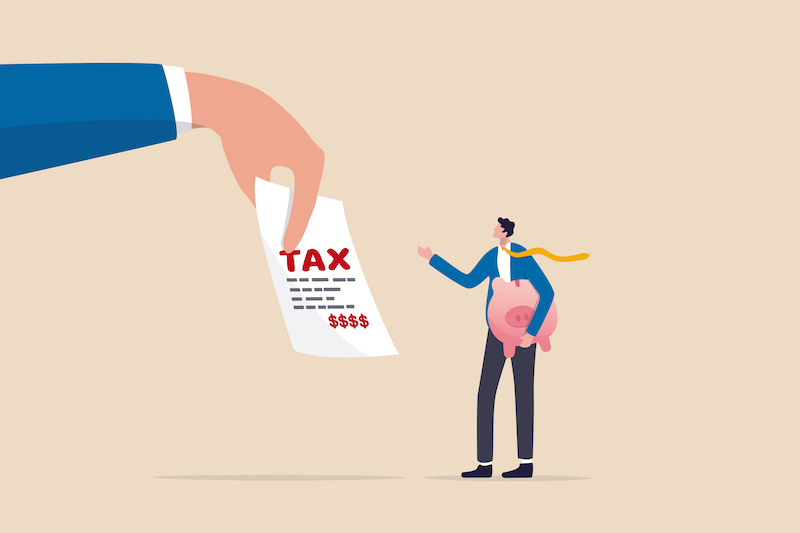Singapore has established itself as a global hub for business and entrepreneurship, attracting a diverse range of entrepreneurs and investors. Whether you run a sole proprietorship, partnership, or company in this thriving city-state, understanding the annual return filing requirements is crucial to ensure compliance with Singapore’s regulatory framework.
In this blog, we will explore the specific annual return filing obligations for these three common business structures in Singapore.
Sole Proprietorship in Singapore
A sole proprietorship is the simplest form of business structure, making it popular among solo entrepreneurs. Here’s what you need to know about annual return filing for sole proprietorships in Singapore:
1. Personal Income Tax Filing:
In Singapore, a sole proprietorship is not considered a separate legal entity. The business’s income is treated as the owner’s personal income. Sole proprietors must file their personal income tax returns annually. This includes reporting their business income and expenses on their individual income tax return (Form B for residents and Form M for non-residents).
2. Tax Deadlines:
The deadline for filing personal income tax returns for residents in Singapore typically falls on April 15th of each year. Non-residents have varying deadlines depending on their tax residency status.
3. Record Keeping:
Sole proprietors should maintain comprehensive financial records, including income statements, receipts, invoices, and expense records. Proper record-keeping is crucial for accurate tax reporting and can help in case of audits or inquiries by the Inland Revenue Authority of Singapore (IRAS).
Here’s a guide to record keeping for sole proprietorships in Singapore:
Separate Business and Personal Finances:
One of the first principles of record keeping for sole proprietorships is to keep your business and personal finances separate. This means having separate bank accounts for your business transactions and personal expenses. This separation simplifies tracking income and expenses related to your business.
Keep Detailed Financial Records:
Maintain thorough financial records that track every aspect of your business’s finances. Here’s what you should include:
a. Income Records:
- Keep records of all sales and revenue generated by your business. This includes sales receipts, invoices, and digital payment transaction records.
- Record any additional sources of income related to your business, such as interest earned on business bank accounts.
b. Expense Records:
Document all business-related expenses, including receipts and invoices. Common expenses include rent, utilities, office supplies, advertising costs, transportation expenses, and any other costs incurred in the course of operating your business.
Keep track of your mileage if you use your personal vehicle for business purposes, and maintain records of related expenses.
c. Asset Records:
Maintain a record of your business assets, including their purchase date, cost, and current value. This includes equipment, vehicles, and any other significant assets used in your business.
d. Liabilities and Debts:
Document any business loans, debts, or credit obligations. Keep records of loan agreements, repayment schedules, and interest payments.
Organise Your Records:
It’s essential to keep your financial records well-organized. Consider the following tips:
- Use accounting software or spreadsheets to record and categorise your income and expenses.
- Maintain a filing system for physical receipts and documents, organised by category and date.
- Regularly reconcile your bank statements with your financial records to ensure accuracy.
Retention Period:
In Singapore, it’s essential to know how long you should retain your financial records. The general guideline is to keep records for a minimum of five years from the end of the financial year to which they relate. However, it’s advisable to keep important records, such as tax returns and supporting documents, for a longer period to comply with potential audit requirements.
Digital Records:
Digital record keeping is widely accepted and convenient. You can use accounting software or cloud-based solutions to store and manage your financial records securely. Ensure that your digital records are regularly backed up to prevent data loss.
Tax Considerations:
As a sole proprietor in Singapore, you will need to report your business income and expenses on your personal income tax return.
Your well-maintained financial records will be invaluable when preparing your annual tax return.
Partnerships in Singapore
Partnerships involve two or more individuals or entities collaborating to operate a business. Here are the annual return filing requirements for partnerships in Singapore:
1. Partnership Tax Return:
Partnerships in Singapore must file an annual partnership tax return (Form P) with the IRAS. This return provides details about the partnership’s income, expenses, and the distribution of profits among partners.
2. Partner’s Individual Tax Filing:
Each partner in the partnership is required to include their share of the partnership’s income in their individual tax return. Partnerships provide partners with a statement showing their share of the partnership’s income.
3. Tax Deadlines:
Partnerships in Singapore have specific filing deadlines set by the IRAS. Partners, as individuals, should adhere to the personal income tax filing deadlines applicable to them.
4. Record Keeping:
Effective record-keeping is essential for partnerships in Singapore to ensure financial transparency, compliance with regulatory requirements, and the smooth operation of the business. Here’s a guide to record-keeping for partnerships in Singapore:
Partnership Agreement:
Before delving into record keeping, it’s crucial to have a well-drafted partnership agreement in place. This document outlines the roles, responsibilities, and profit-sharing arrangements among partners. It should also specify how financial records will be maintained, accessed, and shared among partners.
Separate Business and Personal Finances:
Just like in sole proprietorships, it’s vital for partnerships to maintain a clear separation between business and personal finances. Partners should establish separate bank accounts exclusively for the partnership’s financial transactions.
Comprehensive Financial Records:
Partnerships should maintain detailed financial records that cover all aspects of their financial activities. Here’s what you should include in your records:
a. Income Records:
Keep records of all sources of income related to the partnership, including sales, revenue from services, interest, and any other income streams. This should include invoices, receipts, and bank statements.
b. Expense Records:
Document all business-related expenses, such as rent, utilities, office supplies, advertising, travel, and other operating costs. Retain receipts and invoices as supporting documentation.
c. Partner Contributions and Distributions:
Record any capital contributions made by partners to the partnership. Document any withdrawals or distributions made to partners, specifying the purpose and date.
d. Asset Records:
Maintain records of all partnership assets, including purchase prices, depreciation schedules, and current valuations. This should encompass assets like equipment, vehicles, and property.
e. Liabilities and Debts:
Keep records of any loans or debts the partnership has incurred. Include loan agreements, repayment schedules, and interest payments.
f. Profit and Loss Statements:
Prepare regular profit and loss statements to monitor the financial performance of the partnership. This should detail income, expenses, and net profit or loss.
Organisation and Categorization:
Effective record-keeping involves organising and categorising your financial records. Here are some tips:
- Use accounting software or spreadsheets to record and categorise income and expenses accurately.
- Maintain a systematic filing system for physical receipts and documents, arranged by category and date.
- Regularly reconcile your bank statements with your financial records to ensure accuracy.
Retention Period:
In Singapore, partnerships should retain financial records for a minimum of five years from the end of the financial year to which they relate. This retention period may be extended if there are ongoing disputes or investigations. It’s advisable to keep records longer than the minimum requirement for added security.
Digital Records:
Digital record-keeping is a practical choice for partnerships. Consider using accounting software or cloud-based solutions to store and manage your financial records securely. Ensure regular backups of digital records to prevent data loss.
Tax Considerations:
Partnerships in Singapore are required to file an annual partnership tax return (Form P) with the Inland Revenue Authority of Singapore (IRAS). Accurate and organised financial records are essential when preparing this tax return.
Companies in Singapore
Companies in Singapore, including private limited companies (Pte Ltd) and public limited companies (PLC), are separate legal entities. Here’s what you need to know about annual return filing for companies in Singapore:
1. Annual Return and Tax Filing:
Companies in Singapore must file an annual return with the Accounting and Corporate Regulatory Authority (ACRA) and a corporate income tax return (Form C-S or Form C) with the IRAS. The annual return contains details about the company’s shareholders, directors, and financial statements.
2. Shareholder Reporting:
Shareholders in Singapore companies receive a tax statement, known as Form IR8A, which outlines their income from the company. This information is used by shareholders to report their earnings in their individual tax returns.
3. Tax Deadlines:
The deadlines for annual returns and tax filing for companies in Singapore can vary depending on their financial year-end. Generally, companies have up to 7 months from their financial year-end to file their annual returns, while tax filing deadlines vary.
4. Record Keeping:
Record keeping for companies in Singapore is a fundamental aspect of maintaining transparency, complying with regulatory requirements, and ensuring smooth operations. Companies in Singapore are expected to maintain comprehensive and accurate records to facilitate compliance with statutory obligations. Here is a guide to record keeping for companies in Singapore:
Financial Records:
Maintaining accurate financial records is paramount for companies in Singapore. These records help in preparing financial statements, complying with tax regulations, and making informed business decisions. Key financial records include:
- Financial Statements: Prepare and keep financial statements, including the balance sheet, income statement, cash flow statement, and statement of changes in equity. These statements should adhere to the Singapore Financial Reporting Standards (FRS).
- Receipts and Invoices: Retain records of all sales receipts, invoices, and payment receipts. These documents support the income generated by the company.
- Expense Records: Document all business-related expenses, including receipts and invoices for rent, utilities, salaries, office supplies, advertising, transportation, and any other operational expenses.
- Asset Records: Maintain records of all company assets, including purchase prices, depreciation schedules, and current valuations. This should encompass tangible assets (e.g., equipment, vehicles) and intangible assets (e.g., patents, trademarks).
- Liabilities and Debts: Keep records of any loans, debts, or credit obligations the company has incurred. This includes loan agreements, repayment schedules, and interest payments.
Corporate Records:
Companies in Singapore must maintain corporate records to ensure compliance with legal requirements and corporate governance standards.
- Minute Books: Keep minutes of all meetings held by the board of directors, shareholders, and any committees. These minutes should be kept up to date and accurately reflect the discussions and decisions made during the meetings.
- Share Registers: Maintain a register of members (shareholders) and their shareholdings. Ensure this register is updated with any changes in ownership.
- Directors’ and Officers’ Registers: Maintain registers of directors, nominee directors and officers, including their personal details and appointments within the company.
- Register of Charges: If the company has taken out any loans secured against its assets, maintain a register of charges that details these obligations.
Tax Records:
Compliance with tax regulations is crucial for companies in Singapore.
- Corporate Income Tax (CIT): Keep records of all financial transactions and documents necessary for the preparation of the CIT return. This includes tax computations, supporting documents, and records of tax payments.
- Goods and Services Tax (GST): Maintain records of GST transactions, including invoices, receipts, and credit notes, as well as GST returns and supporting documents.
Employment Records:
If your company employs staff, maintain employee records, including employment contracts, payroll records, and records of statutory contributions, such as Central Provident Fund (CPF) contributions.
Intellectual Property (IP) Records:
If your company holds intellectual property rights, keep records of IP registrations, licenses, agreements, and any related correspondence.
Data Protection Records:
If your company handles personal data, maintain records related to compliance with data protection regulations, including consent forms, data access requests, and data breach records.
Statutory Registers and Filings:
Ensure that you maintain statutory registers required by law, such as the Register of Members, Register of Directors, and Register of Charges. Timely submission of annual returns and other statutory filings to ACRA (Accounting and Corporate Regulatory Authority) is essential.
Document Management:
Implement a robust document management system to organise and securely store physical and digital records. This system should ensure easy retrieval and compliance with data protection requirements.
Retention Period:
Be aware of the retention periods for different types of records. In Singapore, financial records should be retained for a minimum of five years from the end of the financial year to which they relate. However, certain records may need to be kept for a more extended period due to regulatory or legal requirements.
Conclusion
Complying with annual return filing requirements is a vital aspect of managing a business for all companies incorporated in Singapore, regardless of its structure. Whether you operate as a sole proprietorship, partnership, or company, understanding and fulfilling these obligations in a timely and accurate manner is crucial to avoid penalties and regulatory issues.
If you’re unsure about how to maintain accurate financial records or if you want to focus your time and energy on your business operations, consider hiring a corporate service provider that provides professional accounting or bookkeeping services. They can help you set up an efficient record-keeping system and provide guidance on tax compliance and financial management.




